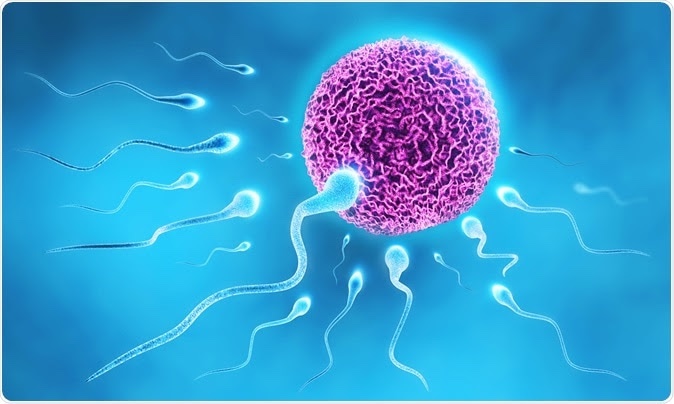EMERGENCY: TESTOSTERONE AND SPERM IN SHORT SUPPLY

The New York Post recently ran an alarming story about the fact that sperm counts in Western countries have dropped by more than 50 percent since the 1970s. Mount Sinai fertility scientist Dr. Shanna Swan wrote a book on her findings called Count Down, and the research she’s compiled since 1997 is staggering, going so far as to call it a “global existential crisis”. Before we continue into Dr. Swan’s findings, stop and think for a moment about the foundation of human survival: reproduction.
The desire to reproduce is hard-coded into all of us, influencing most of our decisions as adults. It’s why we crave sex, why we seek out companionship, and the reason we date, fall in love, and marry. The combination of these hormones and instincts ensure the continuation of our species: it’s a survival mechanism. Without reproduction, we eventually die out and become extinct as a species. Dr. Swan’s study is not examining the will of people to reproduce. People are getting married later in life, not getting married at all, avoiding having children or having less children, etc. These are facts, but Dr. Swan’s study did not address these issues in her findings. What she’s looking at is a problem with the actual ingredients necessary to create life. For whatever reason, they seem to be spoiling at a rapid rate. In 2017, Dr. Swan’s findings sounded the alarm, with a meta-analysis of 40,000 men revealing that sperm count fell a whopping 59 percent between 1973 and 2011.
These other statistics are also alarming:
- Worldwide fertility has dropped by 50 percent between 1960 and 2015
- The United States has a total birth rate that is 16 percent below what it needs to replace itself
- In some parts of the world, the average twenty-something woman today is less fertile than her grandmother was at 35
- Today the average male is nearing that number at 47.1 million sperm per milliliter. Compare him to his father, who had an average of 99 million sperm per milliliter, and it’s clear that this is a deeply worrying trend.
- Men now seek help for erectile dysfunction on average seven years earlier than they did in 2005 and 26 percent of men who deal with it are under the age of 40.
So, what can we do about it? We are already a facing a war on traditional masculinity by the mainstream media. Men are being demonized for testosterone-fueled habits and instead are being pressured into becoming sedentary, Netflix-binging, junk food consuming softies that should get high and drunk instead of going to the gym. We are being told we shouldn’t flirt with women and should not associate engage in any “aggressive” activities, because God forbid we upset or offend some jealous weakling because we want to go do some sparring at the gym or shoot some firearms at the range…

To improve your chances of being a high-testosterone, fertile male, here are some suggestions based on Dr. Swan’s research:
- Get off that peloton: Men who cycle for ninety minutes or more per week had 34 percent lower sperm concentrations than those who didn’t ride bicycles at all. I guess crushing your nuts for an hour and a half isn’t that smart.
- On Your Feet: instead of gaming or binge TV-watching for hours, get on your feet and be active. Healthy young men who exercise regularly may have better quality semen than their sedentary peers, a study of sperm donors suggests. Seems like common sense, as physically activity increases blood flow, burns fat and builds muscle, which is essential for producing healthy sperm.
- De-Stress: Men who reported the highest levels of work stress had 38 percent lower sperm concentrations. In today’s “connected” world, you’ve got to find ways to disconnect and relax.
- Ditch the cold cuts: Men who eat a lot of processed meats (hot dogs, bacon, sausage, salami) tend to have lower sperm counts and a lower percentage of normally shaped sperm. The theory is that “the curing of meat produces chemicals . . . that can cause cancer and also damage DNA, including DNA in sperm,” writes Swan.
- Have sex: Studies have shown that having sex boosts your testosterone levels. Not only will you increase your likelihood of producing viable sperm, testosterone also helps fortify bones and muscles, while keeping your heart in good working condition.
- Try the Mediterranean diet: Research shows that couples who follow the Mediterranean diet (whole grains, good fats, lots of veggies) while undergoing IVF treatments had a 40 percent higher likelihood of conceiving than those who didn’t.
- Go Organic: Swan also urges people to buy organic to avoid pesticides and herbicides that may mess with male hormones, especially items that tend to be most contaminated, like strawberries, spinach, kale, apples and grapes. Avoid animal products that aren’t organic and buy meats labeled as “raised without antibiotics” or “no added hormones.”
If you’re fifteen years old and reading this, you might ignore it because it doesn’t effect you right now. If you’re thirty seven and not planning on getting married, you may feel the same. Do yourself a favor and start implementing these changes in your lifestyle now, as you may change your mind one day. By then, it might be too late. Do you want to end up a low testosterone, infertile male, or a testosterone-fueled alpha male? The choice is yours.

– Your Big Bro
“A man is one whose body has been trained to be the ready servant of his mind; whose passions are trained to be the servants of his will; who enjoys the beautiful, loves truth, hates wrong, loves to do good, and respects others as himself.” – John Ruskin
